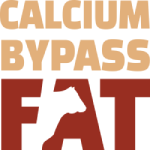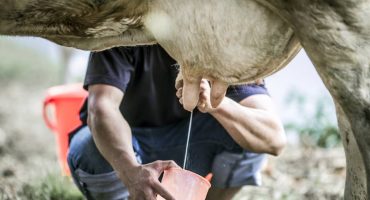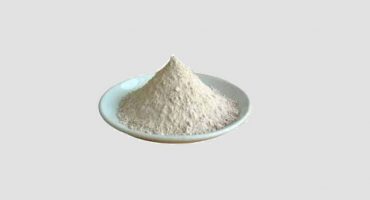WHAT IS RUMEN BYPASS FAT?
Fatty acids are not fermentable, so they are not a source of energy for rumen microbes; further, unsaturated fatty acids are toxic to the microbes, so as a defense mechanism, the ruminal microorganisms bio hydrogenate (saturate) these fatty acids to a less toxic form. Therefore, the supplementation of fat for dairy cows is achieved by means of Bypass Fat, which pass the rumen without any degradation.
Rumen protected fat are dry fats that are processed to be easily mixed into animal feeds. Because dry fat naturally have high melting points, they are mostly insoluble at rumen temperature. In essence, dry fat are not as much protected as completely insoluble in the rumen such that they have little impact on rumen fermentation.
There are just three methods of producing dry fat for animal feeds. The method that produces the least desirable product for the cow, partial hydrogenation of tallow, is seldom used for dairy rations. Hydrogenation of tallow and vegetable fats reduces negative effects that fatty acids have on rumen fermentation .
Many specialty bypass fat are appearing in the market. These include reproduction and functional feed formulas that promote high levels of conjugated linoleic acid in the milk. Bypass oil vary in quality due to their production technologies and their differences in fatty acids. Fatty acid composition is the most important parameter affecting the digestibility of oils.
To be profitable from dairy farm operations, it is imperative to maximize the energy intake of dairy cows and minimize the negative energy balance. Farmers often prefer to use Calcium Salty By pass Fat for dairy cattle. The digestibility and energy content of the calcium soaps according to the saturated oils are quite high.
Calcium bypass fat are the most highly digestible fat group in many trials and have proven to have a very positive effect on yield and reproductive performance in high milk yielding animals. Calcium salts of long chain fatty acids are produced as the insoluble salt as a result of the reaction of long chain fatty acids with the carboxyl group. Due to this feature, digestibility is high. Also calcium salts are not affected by rumen ph. The calcium soap of distilled palm fatty acids can maintain stability in rumen Ph. Therefore, they do not decompose in normal rumen pH and therefore do not affect cellulose digestion. It is not affected by biohydrogenation. The degree of insolubility of the Ca soaps depends on the rumen pH level and the fat, fatty acid profile. Ca soap is less susceptible to biohydrogenation, even in low rumen Ph.






